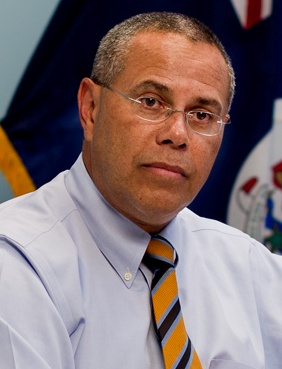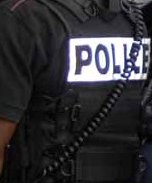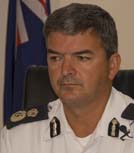 Headline News
Headline News

AG silent on public accounts
 (CNS): The Auditor General’s Office has refused to comment on how many government ministries and statutory authorities made the 31 August deadline for submitting their financial accounts for the year end 2009/10. CNS called the office on Wednesday morning and a spokesperson for the new auditor general said he would be making no comment as it formed part of ongoing work, which the office had said it would not discuss. The spokesperson stated that the situation regarding government’s accounts would be revealed in the auditor general’s annual government report, which would be published in December. As a result CNS has now submitted an FOI request.
(CNS): The Auditor General’s Office has refused to comment on how many government ministries and statutory authorities made the 31 August deadline for submitting their financial accounts for the year end 2009/10. CNS called the office on Wednesday morning and a spokesperson for the new auditor general said he would be making no comment as it formed part of ongoing work, which the office had said it would not discuss. The spokesperson stated that the situation regarding government’s accounts would be revealed in the auditor general’s annual government report, which would be published in December. As a result CNS has now submitted an FOI request.
Crown witness’s memory fails
(CNS): A witness who told the police four days after the murder of Omar Samuels that he had seen one of the defendants quarrel with the dead man on the night he was killed revealed he could no longer recall most of the events recorded in his statement when he appeared in court today. Marcus Manderson, who is an inmate at HMP Northward, said he could only remember what happened later that night when he found Samuels and tied up his injured leg. In contradiction to his original statement, he told the court that the dead man had revealed the name of his killer before he died. Manderson said that Samuels told him “Martin” had shot him and taken his gun.

Judge vacancy advertised
 (CNS): Following its first meeting, the Judicial and Legal Services Commission has already begun the recruitment process for a new high court judge and the position will be advertised, according to the commission chair, Dan Scott. He said the creation of the JLSC began a new system of recruitment for the judiciary as its members, along with other appropriate people, would form the panel to find the new judge. Although the chief justice is expected to offer input, Scott confirmed he would no longer be solely responsible for finding senior judicial staff. Scott also said the commission was drawing up a code of conduct for the judiciary and the public would have access to complain directly to the JLSC regarding the conduct of judges and other senior public figures working in legal services. (Photo Dennie Warren Jr)
(CNS): Following its first meeting, the Judicial and Legal Services Commission has already begun the recruitment process for a new high court judge and the position will be advertised, according to the commission chair, Dan Scott. He said the creation of the JLSC began a new system of recruitment for the judiciary as its members, along with other appropriate people, would form the panel to find the new judge. Although the chief justice is expected to offer input, Scott confirmed he would no longer be solely responsible for finding senior judicial staff. Scott also said the commission was drawing up a code of conduct for the judiciary and the public would have access to complain directly to the JLSC regarding the conduct of judges and other senior public figures working in legal services. (Photo Dennie Warren Jr)

Two nabbed in West Bay raid
 (CNS): Police arrested two men and took a semi-automatic pistol and a quantity of ganja off the streets following a police operation in West Bay yesterday. According to the RCIPS, at about 1.45am on Tuesday, 31 August, a joint uniform, CID and USG operation was launched in the West Bay area. A car and premises were searched resulting in the seizure of a quantity of ganja and a semi-automatic pistol. The men, aged 23 and 31 years, were arrested on suspicion of possession of an unlicensed firearm, as well as possession and consumption of ganja. Police enquiries are ongoing. (Photo by Dennie Warren Jr)
(CNS): Police arrested two men and took a semi-automatic pistol and a quantity of ganja off the streets following a police operation in West Bay yesterday. According to the RCIPS, at about 1.45am on Tuesday, 31 August, a joint uniform, CID and USG operation was launched in the West Bay area. A car and premises were searched resulting in the seizure of a quantity of ganja and a semi-automatic pistol. The men, aged 23 and 31 years, were arrested on suspicion of possession of an unlicensed firearm, as well as possession and consumption of ganja. Police enquiries are ongoing. (Photo by Dennie Warren Jr)
Detective Superintendent Marlon Bodden said, “Following the gun amnesty the commissioner warned that we would be going all out to gather intelligence and mount targeted raids to take illegal guns off the streets. This latest operation and the successful recovery of this dangerous weapon underlines our commitment to do exactly that. The joint RCIPS and Cayman Crime Stoppers reward offered for information leading to the recovery of illegal guns and the arrest of those who hold them still stands. So now is your chance to tell us what you know to help eradicate gun crime in Cayman and put those responsible behind bars."
Anyone with information about gun crime should call their local police office or Cayman Crimestoppers on 800-TIPS.

Tourist robbed by two men
 (CNS): Police have confirmed that a visitor from the United States was reportedly robbed along the West Bay Road on Tuesday. At about 10:20 last night officers on patrol came upon a 38-year-old man at the Owens Roberts international airport, who reported to them that earlier on he had been robbed on the West Bay Rd in the vicinity of the Hyatt hotel. He said that at around 9:50pm he was approached by two males who knocked him to the ground. They then took his metal clip which contained a Verizon incredible phone, ID, stamps and various cards and ran off. No cash was involved. He received minor injuries to one of his knees but did not require medical attention. (Photo Dennie WarrenJr)
(CNS): Police have confirmed that a visitor from the United States was reportedly robbed along the West Bay Road on Tuesday. At about 10:20 last night officers on patrol came upon a 38-year-old man at the Owens Roberts international airport, who reported to them that earlier on he had been robbed on the West Bay Rd in the vicinity of the Hyatt hotel. He said that at around 9:50pm he was approached by two males who knocked him to the ground. They then took his metal clip which contained a Verizon incredible phone, ID, stamps and various cards and ran off. No cash was involved. He received minor injuries to one of his knees but did not require medical attention. (Photo Dennie WarrenJr)
He described both suspects as white males between the ages of 26 and 30 about 5’8” tall with short haircuts. The man said one robber was wearing a blue shirt and white shorts, the other, had a green shirt on the police did not say if either of the men were armed. The man who is from Oklahoma in the United States will be leaving the islands tomorrow, police said.

No need for pension swap
 (CNS): A motion filed in the Legislative Assembly by the government’s George Town backbench MLA, Ellio Solomon, is both completely unnecessary and nothing more than a political manoeuvre, the opposition has said. Alden McLaughlin criticised the motion by Solomon which proposes to allow Caymanians to swap their pensions for a home loan and take up to $35,000 from their pension to use as a deposit for a house or land. The former Cabinet minister said there are already various schemes in place to help people find capital for property and that there is no need to encourage them to put their pensions at risk.
(CNS): A motion filed in the Legislative Assembly by the government’s George Town backbench MLA, Ellio Solomon, is both completely unnecessary and nothing more than a political manoeuvre, the opposition has said. Alden McLaughlin criticised the motion by Solomon which proposes to allow Caymanians to swap their pensions for a home loan and take up to $35,000 from their pension to use as a deposit for a house or land. The former Cabinet minister said there are already various schemes in place to help people find capital for property and that there is no need to encourage them to put their pensions at risk.
Witness heard 13 shots
(CNS): On day two of the murder trial of Patrick McField, Osborne Douglas and Brandon Ebanks, the crown’s key eye witness said she heard 13 shots fired on the night (5 July 09) Omar Samuels was killed in front of a house in McField Lane, George Town. The sixteen year old girl told the court, during two days of evidence via video link that she was there when the three defendants came to the house. Douglas and Ebanks both had guns, she said, which they held to Samuels head before they began fighting in the yard, while McField looked on. The teen testified that Samuels fell back on to a fence as Ebanks and Douglas began shooting at him. (Photo courtesy of News27)

CIG faces costly legal fight
 (CNS): The courtroom battle which government now faces with the former schools contractor, Tom Jones International, is set to be an expensive fight. Not only did government lose its bid to get TJI’s claim against it thrown out, the judge has also ordered that government foot the bill for the contractor’s attorneys in the first round of what looks likely to become a very costly exercise for the Education Ministry. According to the judgment handed down by Justice Alex Henderson last week, TJI was “wholly successful” at this stage and was entitled to costs. Henderson also said that government’s counterclaim against TJI was already vulnerable to strike out because of the “woeful lack of particularity” presented to the court in this first round.
(CNS): The courtroom battle which government now faces with the former schools contractor, Tom Jones International, is set to be an expensive fight. Not only did government lose its bid to get TJI’s claim against it thrown out, the judge has also ordered that government foot the bill for the contractor’s attorneys in the first round of what looks likely to become a very costly exercise for the Education Ministry. According to the judgment handed down by Justice Alex Henderson last week, TJI was “wholly successful” at this stage and was entitled to costs. Henderson also said that government’s counterclaim against TJI was already vulnerable to strike out because of the “woeful lack of particularity” presented to the court in this first round.

Cops criticize commissioner
 (CNS): The Police Association has publicly criticized Commissioner David Baines regarding comments he made about basic literacy training for police officers. The association suggested that the rank and file could have been further demoralised by what Baines said at a public meeting in West Bay, which was reported on CNS. Inspector Gordon, the group’s chairman, stated that this could have put further strain on an already strained relationship between management and the ranks. The group, which represents the interests of police officers, has complained about problems with training and believes it is mismanagement of cash that has caused the problems.(Photo Dennie WarrenJr)
(CNS): The Police Association has publicly criticized Commissioner David Baines regarding comments he made about basic literacy training for police officers. The association suggested that the rank and file could have been further demoralised by what Baines said at a public meeting in West Bay, which was reported on CNS. Inspector Gordon, the group’s chairman, stated that this could have put further strain on an already strained relationship between management and the ranks. The group, which represents the interests of police officers, has complained about problems with training and believes it is mismanagement of cash that has caused the problems.(Photo Dennie WarrenJr)

Crown has eye witness
(CNS): The murder trial of Patrick McField, Osborne Douglas and Brandon Ebanks for the murder of Omar Samuels, opened this morning (Monday 30 August) with the revelation that the crown has an eye witness to the murder. The 16 year old girl is the crown’s key witness who says she saw the accused men shoot Samuels outside a house in McField Lane where she had gone to visit a friend on 5 July 2009. Solicitor General, Cheryl Richards QC gave her brief opening statement about the crown’s case against the three defendants, shortly after eight women and four men were selected to serve on the jury.
Richards told the court that the identification made by the witness was key to the case. The crown’s prosecuting counsel said she was related to two of the defendants and lived in the same neighbourhood as the third so she was very familiar with the men. Despite the darkness at the time of the crime Richards said the house and porch where Samuels was shot was well lit.
The crown’s case is that McField, Douglas and Ebanks had quarreled with the deceased earlier in the evening and then later came to the house to find him where armed with guns the three men acted together to commit the murder. Although Samuels was shot only once in the leg police found five empty shell casing at the scene.
The one gun shot which Samuels received proved to be fatal and Richards said the pathologist confirmed that the bullet penetrated Samuels’ femoral artery causing him to bleed to death.
The three men accused of killing Samuels are all represented by Queen’s Counsel from the UK and local defence attorneys Nicholas Dixie, Ben Tonner and Clyde Allen. The crown’s case is being made by Cheryl Richards QC, the solicitor general, supported by crown counsel Trisha Hutchinson.
The trial continues this afternoon with a video link to the first witness.